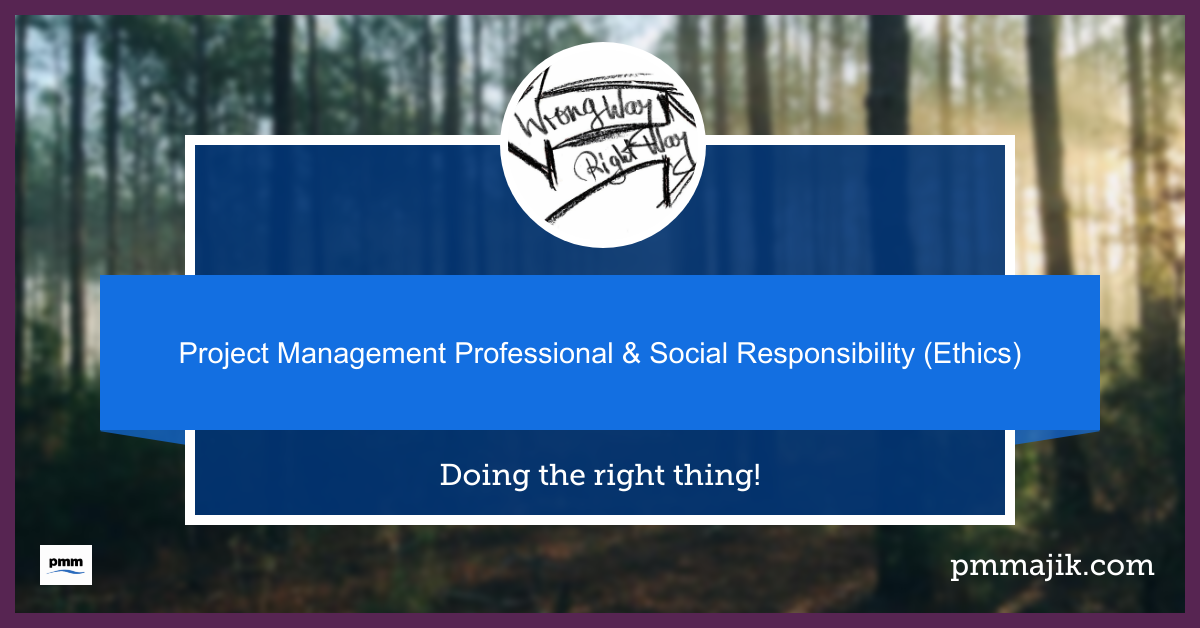Project management professionals are an integral part of starting and completing any organizational project. Apart from scheduling projects, budgeting, and managing resources, these professionals are responsible for upholding project management ethics. With Project Management Professional (PMP) certification, professionals can have all the required and basic skills that will help in project management without deviating from ethical standards.
Social responsibility in project management includes project effects on different stakeholders, workers, clients, and the environment at large. Project managers must seek that societies benefit from the sustainability and benefits of their projects. As such, they must carefully plan, execute ideas, and reduce associated risks that may affect their overall results.
Social Responsibility and Ethics
Social responsibility and ethics go side by side. Beyond the project management community, organizations must also benefit from project management when managers uphold ethical standards. A responsibly and ethically executed project can promote sustainable development and positively impact the community.
Stakeholder engagement is one of the primary social responsibility principles. Managers must identify and carry stakeholders along as they decide and plan their projects. As such, they can consider their interests and suggestions, allowing managers to address their interests as they progress with the projects. Moreover, managers must not downplay their projects’ impact and ensure to take the necessary steps for risk and consequence mitigation.
Social, ethical considerations for Project Management Professionals
Ethics in Project Management & Social Responsibility deals with decision-making principles. This requires professionals to be honest, have integrity, and be transparent to their stakeholders to achieve successful completion of projects.
Responsibility
All project managers must show responsibility. They are responsible for whatever they decide and for their actions, as well as for their outcomes and consequences. A project manager must decide and take favourable societal actions that will make the environment safe. The project management professionals community only accepts assignments that are consistent with their background, skills, etc.
Respect
The project manager’s respect indicates a high self-regard and regard towards others. This also extends to resources within their capacity, such as people, finances, etc. A respectful environment fosters trust and confidence. Project management professionals also tell each other the norms and standards and shun all forms of disrespectful behavior. They do not shun other people’s ideas or views but always seek to understand them.
If there is conflicting information, they directly approach the parties involved and find a way to settle every disagreement. They conduct themselves professionally, even if other parties do not return it the same way.
Fairness
Fairness is one of the social and ethical considerations for project managers. With this ethic, project managers decide and act without any bias. As a project manager with fairness, he must be without self-interest and favour one over the other. He must also be without prejudice, showcasing transparency whenever he decides on anything. A fair project manager will constantly re-examine his unbiasedness and make the right decision anywhere necessary.
Honesty
A project manager’s duty extends to understanding and acting within the truth. He communicates in truth and truthfully executes all activities. Project managers continually seek to understand the truth and exhibit trust in actions and communications.
Project management professionals pass information around the right time and make any promise in good faith. Moreover, they strive to build a truth-enabling environment where everyone sees truth as a watchword.
Conclusion
Project management cannot thrive without social and ethical components. Project Management Certification provides managers with the required information and skills for social management projects by showing good ethics and responsibilities. Managers can build and promote respect, fairness, honesty, and social ethics with their responsibilities, which can benefit their immediate environment.






